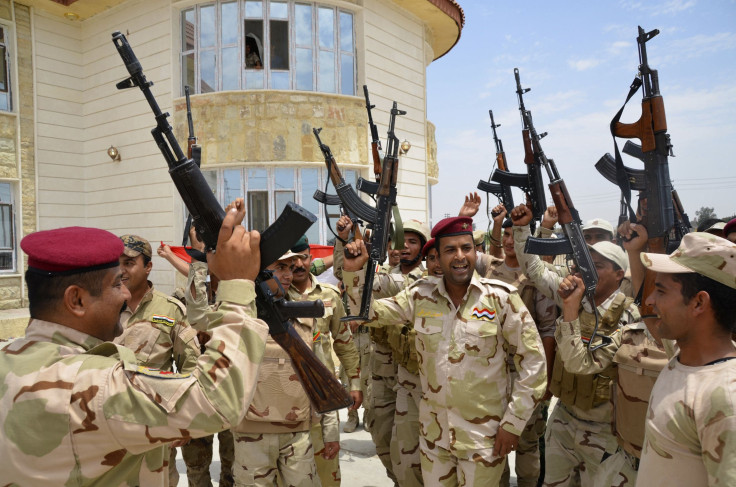Baghdad Suicide Bombing Kills 21, As Sectarian Violence Increases

A suicide car bomb at an Iraqi police checkpoint killed 21 people and wounded at least 35 Tuesday. The car bomb came after a weekend plagued with similar attacks in the area that left at least 66 dead, and there were also two additional bombings Tuesday at a police station.
The attack came in the final days of Ramadan and hit a street filled with cars en route to Imam Al-Khadim Shrine, a Shiite site where many go to celebrate the Eid festival commemorating the end of the holy month, the Associated Press reported.
Violence has been increasing in Iraq since the Sunni-extremist insurgents, the Islamic State took over Mosul, Iraq’s second largest city, and issued promises to take the capital, threatning to push the country back into a sectarian civil war.
“We are now in a state of continued jihad to end the remnants of the U.S. occupation and restore the rights of the Iraqi people,” senior Salafi cleric Abd Al-Naser Al-Janaby, who supports the insurgents, told Reuters earlier this month. “We expect a new dawn for Iraq from this revolution.”
In Iraq, Shiites have been the U.S.-imposed ruling sect since Nouri al-Maliki, the former Shiite dissident under the rule of Baathist Saddam Hussein, was elected prime minister. Police forces and the army are, in theory, aligned with Shiite militia, but infiltrations are common even though Maliki purged many of the non-Shiite members.
Government forces have been trying to take back Islamic State territory since June. The Islamic State was loosely affiliated with Sunni Al Qaeda until Al Qaeda reportedly disowned it for actions in Syria. Hussein, although having pushed a Baathist ideology during his time, was a Sunni, so the Islamic State has some Hussein loyalists and former Baath party members fighting with them.
At least 5,576 Iraqi civilians have been killed since January, the United Nations estimates.
© Copyright IBTimes 2024. All rights reserved.






















